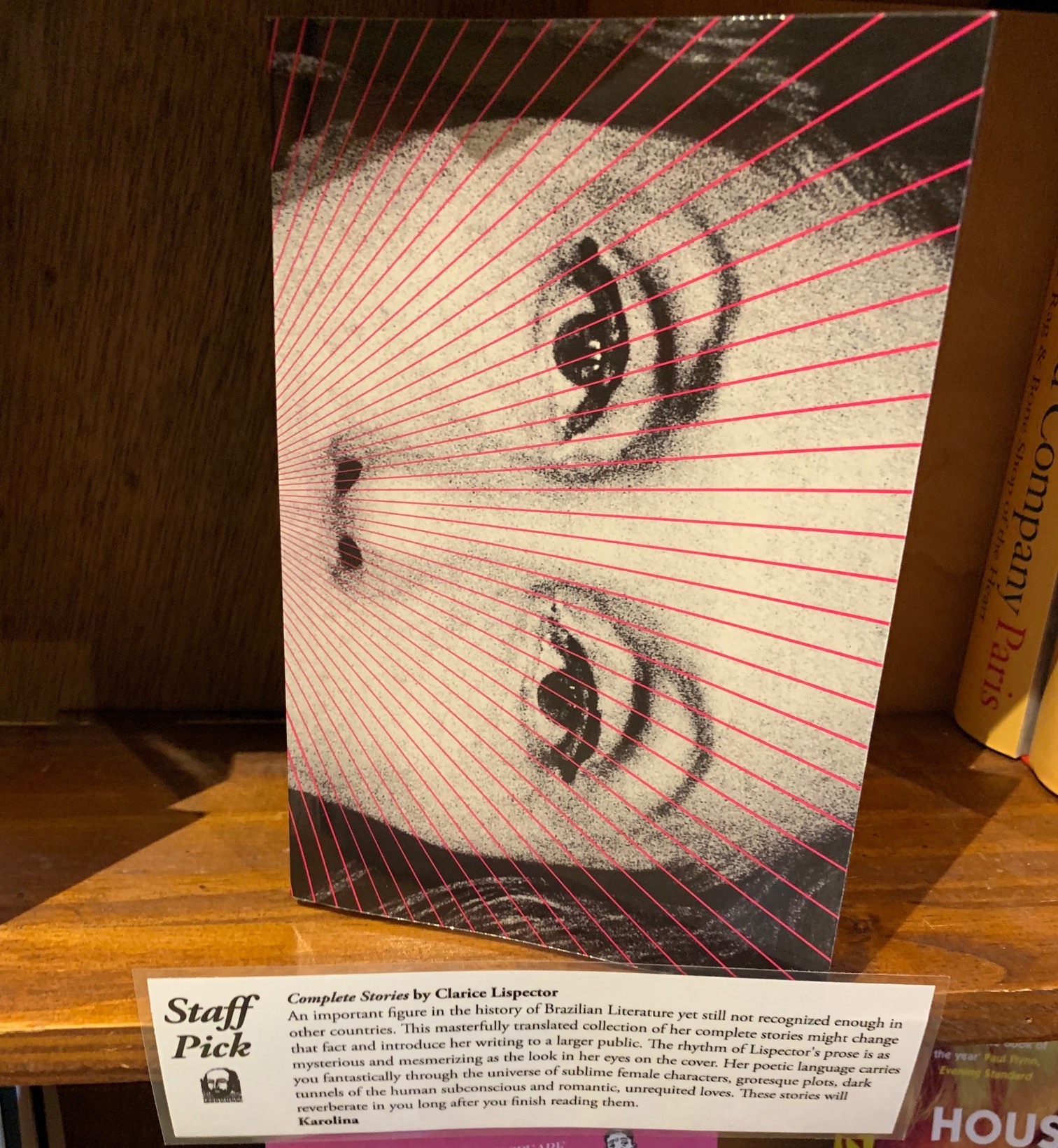, Clarice in Paris. IMS Clarice Lispector, 2019. Disponível em: https://site.claricelispector.ims.com.br/en/2019/03/11/clarice-em-paris/. Acesso em: 26 July 2024.
The traditional Parisian bookstore Shakespeare and Company placed on special display the English version of the book The Complete Stories, by Clarice Lispector. Translated by Katrina Dodson, who won the 2016 PEN Translation Prize for her efforts, the edition was one of the reading suggestions made by the store’s team of booksellers, which is specialized in English-language literature.

The note that accompanied the book on display stressed that the collection of Clarice’s short stories in English was a great opportunity for a larger public to get to know the important Brazilian writer. They described her as possessing a poetic language and hypnotic rhythm, which “carried the reader in a fantastic way through the sublime universe of female characters, the human unconscious, and unrequited love.”
The bookstore has a long history in the French capital. The first store opened in 1919, by the American Sylvia Beach, and became a meeting place for artists such as Ernest Hemingway, Gertrude Stein, Man Ray, Djuna Barnes, Ezra Pound, and T. S. Eliot. In 1922, Shakespeare and Company published the masterpiece of modern literature Ulysses, by James Joyce, which at the time had been prohibited in the United Kingdom and the United States.
It is worth recalling that it is from the epigraph of another book by the Irish writer, A Portrait of the Artist as a Young Man (“He was alone. He was unheeded, happy, and near to the wild heart of life.”), that Clarice, without knowing, and accepting a suggestion by her friend Lúcio Cardoso, borrowed the name for her first novel.
The store, which had been located at 12 rue de l’Odéon since its opening, was forced to close in June 1940 during the German occupation in Paris. After the war, another American, George Whitman, opened the bookstore Le mistral at 37 rue de la Bûcherie, which was modeled after Sylvia’s bookstore. After her death in 1964, George, who six years earlier had received authorization to use the original name, changed his sign to Shakespeare and Company.
Under new direction, the place was frequented at different times by writers such as Allen Ginsberg, Henry Miller, and Anaïs Nin, hosted friends (since it had rooms for this purpose), and housed, between 1978 and 1981, the headquarters of the literary journal Paris Voices. According to the owner’s definitions, the establishment could be considered “a socialist utopia masquerading as a bookstore.”
In a photo published on the bookstore’s Instagram page, on March 8, 2019, Clarice’s face appeared next to singer and actress Marianne Faithfull and others, printed on book covers held by store patrons during the celebration of International Women’s Day.

The emphasis given to the Brazilian writer by a bookstore that specializes in the English language – and that was, as we have seen, the publishing house of an illustrious inventor such as Joyce –, not only reaffirmed the already confirmed quality of Katrina Dodson’s translation and Benjamin Moser’s efforts to promote the author in English-speaking countries, but also gives an idea of the increasing prestige that Clarice has reached outside of Brazil.







